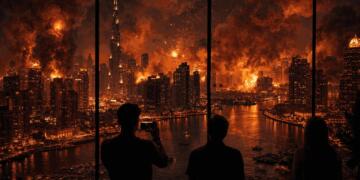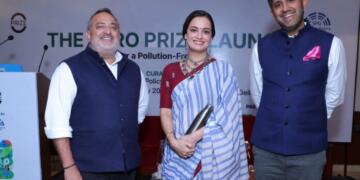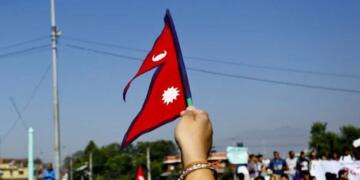A day after Eid-al-Adha, shocking videos from Kolkata surfaced online, showing blood and animal waste flowing through public streets. What should have been a peaceful religious observance quickly turned into a public hygiene nightmare—and it’s raised serious questions about how religious traditions are being carried out in modern India.
Residents and viewers across the country were disturbed by scenes that looked more like a disaster site than a festival cleanup. These visuals didn’t just spark discomfort—they triggered political tension, civic concerns, and a growing demand for reform.
The Mess in West Bengal: A Civic and Political Crisis
The situation in West Bengal became the center of a storm. The opposition, especially the BJP, slammed the Trinamool Congress (TMC) government for failing to manage the festival responsibly. BJP leaders accused Chief Minister Mamata Banerjee of turning Kolkata into “Greater Bangladesh” in a bid to please a particular vote bank.
Their criticism wasn’t just about politics. The anger reflected the frustration of ordinary citizens who saw their roads flooded with animal blood and waste, raising serious concerns about public health, sanitation, and the mental impact on children and the elderly.
In many areas, animal sacrifices took place on streets, in front of shops, and next to homes. These actions not only broke civic laws but also created unnecessary fear and discomfort in a shared public space.
A Tale of Two States: West Bengal vs. Uttar Pradesh
While Kolkata was struggling to clean its streets, Uttar Pradesh took a very different approach. Under Chief Minister Yogi Adityanath, the state enforced clear and strict rules for Eid:
No slaughter of cows or camels, respecting both legal and religious norms.
Only registered slaughterhouses were allowed to operate, and they were checked for capacity limits.
Bird flu precautions were taken seriously.
Strict action was promised for anyone sacrificing animals in public places.
The difference in approach couldn’t be clearer. One state managed the festival with control and clarity, the other allowed chaos in the name of culture. This contrast has opened up a much-needed conversation: how should India handle religious events in public spaces?
Respecting Religion Without Damaging Society
No one is saying Eid-al-Adha—or any religious festival—shouldn’t be celebrated. But it’s time to ask: Do these traditions need to adapt to today’s society?
In many Muslim-majority countries like the UAE and Turkey, sacrifices happen in government-approved, clean slaughterhouses. There are no rivers of blood in the streets. People follow the rituals with dignity—and without disturbing their neighbors.
So why not in India? Why should anyone—regardless of religion—be allowed to turn public roads into butchering grounds?
Faith and Cleanliness Can Coexist
Islam places great value on cleanliness, discipline, and compassion. Yet the way Eid sacrifice was handled in parts of Kolkata seems to go against those values. It’s not about attacking religion—it’s about practicing faith in a way that respects everyone in a diverse society.
There’s also a moral side to this. Exposing children to the sight of animals being killed in open streets is not just inappropriate—it’s traumatic. Modern religious practice must include responsibility toward others, especially in shared spaces.
What Needs to Happen Now
The West Bengal government must take action before the next festival season:
Ban public sacrifices on roads, sidewalks, and near residential areas.
Create designated areas for animal sacrifice, with hygiene checks and proper waste disposal.
Run public awareness campaigns to help people understand why this change is necessary—not against religion, but for public good.
Meanwhile, other state governments should follow Uttar Pradesh’s example in setting and enforcing clear rules, so that law and order come first, not vote-bank politics.
A Time for Honest Change
Eid-al-Adha is about sacrifice, faith, and obedience—but it doesn’t need to involve fear, filth, or lawlessness. India is a secular country, but being secular also means making sure that no one religion overwhelms public space to the discomfort of others.
It’s time for honest reform. Traditions can be honored without causing public suffering. Faith can be followed with compassion, care—and cleanliness.




























